1,2 and 3 weeks pregnant - signs, symptoms and what to expect
Your body is preparing for ovulation and fertilisation
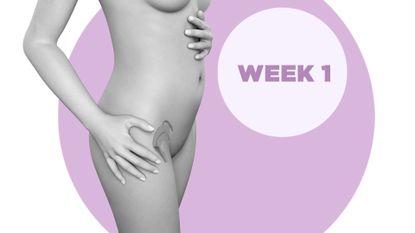

The first few weeks of pregnancy are a hugely exciting time. Find out what's happening while you're 1, 2 and 3 weeks pregnant.
In your very early weeks of pregnancy there won't be much to physically see or feel, but it's nice to know what's going on none the less. In fact, you probably aren't even 'officially' pregnant at all in the first couple of weeks, but science tells us to count weeks of pregnancy from the first day of the last period. We've rounded up what to expect in your first three weeks, as part of our pregnancy week by week guides.
1 week 'pregnant' - technically, you haven't conceived yet
Your 40-week pregnancy is dated from the first day of your period even though you haven't conceived yet. Actual conception will take place around midway through the month and it won't be until you miss your period that you'll be able to find out for definite that you're pregnant, which is around week 5 or your pregnancy. As women ovulate at different times according to their cycle, dating your pregnancy this way gives carers a better idea of the due date.
Your baby may just be 'a twinkle in their daddy's eye', but there are things you can be doing to make sure they're healthy. Eat a well-balanced, nutritious diet and start taking folic acid in pregnancy. It's recommended you take a daily 400mcg folic acid tablet (available from Amazon) from now and continue taking it up to week 12 of your pregnancy. This will significantly reduce the risk of your baby having spina bifida or other neural tube defects.
A study by the University of Surrey found that a better diet and lifestyle can boost your chances of conceiving by up to 80 per cent. Common offenders for preventing pregnancy are caffeine, alcohol and nicotine, so try and kick these first. And remember that means your partner, too.
2 weeks 'pregnant' - ovulation begins
If you have a 28-day menstrual cycle you'll usually ovulate around day 14 (whatever the length of cycle, most women tend to ovulate around 12-16 days before their next period.) Your egg will survive for 12-24 hours after it's released from the ovary, so fertilisation has to happen within this time. You can also test if you are ovulating by measuring your temperature as your increases in temperature by three degrees.
3 weeks pregnant - fertilisation occurs
250 million sperm have gone racing to your egg. When your partner's sperm meets your egg the life of your new baby begins. Within 30 hours of conception the newly-fertilised egg, now known as a zygote, undergoes the first division to form two cells. This is the first of billions of divisions and changes that will take place within the first few weeks of pregnancy.
GoodtoKnow Newsletter
Parenting advice, hot topics, best buys and family finance tips delivered straight to your inbox.
Right now you probably won't feel the monumental changes taking place inside. However, your amazing body has already switched into overdrive in order to create a friendly environment for the newly-fertilised egg.
It does this by producing a pregnancy protein known as Early Pregnancy factor (EPF), an immunosuppressant which will stop your body from rejecting your growing zygote, which is roughly 1cm long. At this point the dividing ball of cells is heading steadily along the fallopian tube towards the cavity of the womb. Once there it will implant by attaching itself to the wall of the womb. This journey to the womb takes about a week.
Some women start to feel pregnant around this time but there are some other early symptoms of pregnancy you should look out for.
Further advice and information:
- Visit the NHS for more pregnancy week by week advice
- Download a pregnancy tracker app
- View all our pregnancy week by week guides

Anna Bailey has been the editor of Goodto since 2018. Before joining the team she was Features Editor at MSN UK, where she oversaw Family Health and Days Out. Previously, she was Digital Lifestyle Editor for the broadcaster UKTV, and Lifestyle Editor for ITV.com. Anna studied Multi-Media Journalism at Bournemouth University and went on to gain her NCTJ and NCE journalism qualifications. Anna is responsible for driving the direction and editorial strategy of Goodto. A mum and experienced baby product tester, she is passionate about providing safe, trustworthy, and relatable advice for families of all kinds.
-
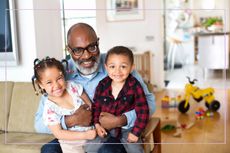 Five categories of grandparent have been identified by psychologists, and we all want number #2
Five categories of grandparent have been identified by psychologists, and we all want number #2Psychologists studying the impact of grandparents in the lives of children have identified five key types, and you'll probably recognise yours instantly.
By Lucy Wigley Published
-
 Millennial dads are doing 4 things better than previous generations, but is it enough to lighten the mother's mental load?
Millennial dads are doing 4 things better than previous generations, but is it enough to lighten the mother's mental load?Millennial dads are definitely doing better than their previous counterparts, but there's still areas they can improve on their parenting to be truly equal to their partners.
By Lucy Wigley Published
-
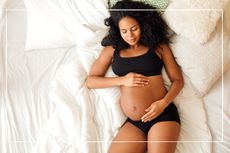 Pregnancy week by week guide
Pregnancy week by week guideEverything you need to know when you're expecting
By Stephanie Lowe Published
-
 Week by week pregnancy guide: 32 weeks pregnant
Week by week pregnancy guide: 32 weeks pregnantYour baby is starting to grow very fast...
By Stephanie Lowe Published
-
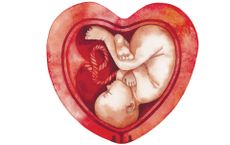 Week by week pregnancy guide: 33 weeks pregnant
Week by week pregnancy guide: 33 weeks pregnantEverything you need to know about being 33 weeks pregnant
By Stephanie Lowe Published
-
 Week by week pregnancy guide: 30 weeks pregnant
Week by week pregnancy guide: 30 weeks pregnantHere's everything you need to know...
By Rosie Conroy Published
-
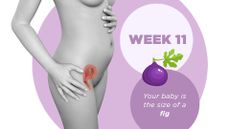 Week by week pregnancy guide: 11 weeks pregnant
Week by week pregnancy guide: 11 weeks pregnantPLUS, how your baby is developing!
By Stephanie Lowe Published
-
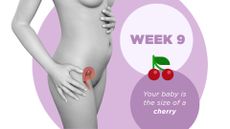 Week by week pregnancy guide: 9 weeks pregnant
Week by week pregnancy guide: 9 weeks pregnantFind out how your baby's developing
By Stephanie Lowe Published
-
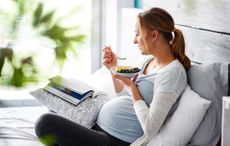 Pregnancy calendar: Your pregnancy timeline
Pregnancy calendar: Your pregnancy timelineJust found out you're pregnant? Don't miss out on any important milestones with our guide...
By GoodtoKnow Published
-
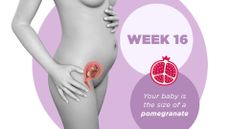 Week by week pregnancy guide: 16 weeks pregnant
Week by week pregnancy guide: 16 weeks pregnantIncluding your baby's development...
By Stephanie Lowe Published